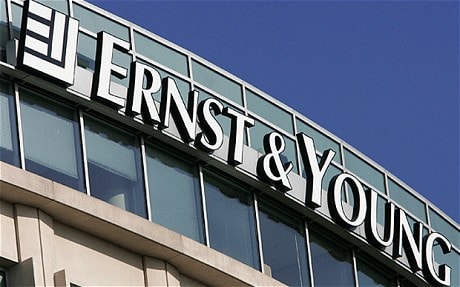By Alice Shen/South China Morning Post
Hongkong, April 25: A survey by accounting firm EY finds perceptions of among local executives of corporate wrongdoing in China are lower than four years ago. China’s anti-corruption campaign and tightened penalties for graft have reduced the perception among business people that bribery and fraud is widespread in the country’s enterprises, according to a survey.
The number of respondents who believed corruption in Chinese corporations was widespread dropped eight points to 16 per cent this year compared with the figure in 2014, according to the “15th Global Fraud Survey” published by accounting firm Ernst and Young (EY) on Wednesday.
“The impact of enforcement on widespread corruption since 2013 in China has definitely had an impact on the perceptions of how widely such practices take place in the country,” said Chris Fordham, Asia-Pacific leader of fraud investigation and dispute services at EY.
The decrease could well be due to the increase in enforcement activity or simply to a belief that corruption has decreased, Fordham added.
The biennial survey interviewed 2,550 executives from 55 countries and regions, including 50 from mainland China and 50 from Hong Kong. Each respondent was asked only about their own country. The figures were compared with the 2014 survey because related laws may need a longer time to take effect, EY said.
More than half of respondents in emerging markets said they thought corruption was widespread in business in their countries, whereas 20 per cent in developed markets indicated that they thought it occurred widely. In Hong Kong the figure was 14 per cent, lower than the 27 per cent average for the Asia region including China, Indonesia, South Korea, Malaysia, Philippines, Singapore and Taiwan.
China’s president, Xi Jinping, began a campaign against corruption in 2013, soon after he came to power, believing graft to be a threat to the survival of the ruling Communist Party. It has ensnared more than 1.5 million officials, including some of very high rank.
In the first nine months of last year alone, the Central Commission for Discipline Inspection, the party’s top anti-corruption agency, issued 383,000 disciplinary penalties. Regulators also extended the scope of bribery in 2016 to include intangible benefits such as employment of relatives.
“In our experience there is often a lag between the introduction of anti-corruption laws and a response from management,” Fordham said.
Across the globe regulators and law enforcement agencies have imposed more than US$11 billion in financial penalties for corruption since 2012, the report said. But 38 per cent of respondents still stated that bribery and fraudulent practices occurred widely in business in their own countries, barely changed from the last survey in 2016.
Countries such as the Czech Republic and Romania, where enforcement agencies were active before 2014, saw decreases in the percentage of respondents who thought corruption was widespread, the report said. However executives in Brazil and Saudi Arabia saw expectations of corruption rising 26 and 20 percentage points respectively compared with 2014.
The report also found younger generations were more willing to offer cash payments to win or retain business, as they did not fully understand what constituted unethical behaviour.
“While millennials or Gen Y [25-34 year olds] are the least willing to work for unethical organisations, they are most likely to offer cash payments,” Fordham said, citing lack of ethical training by their employers.


























































